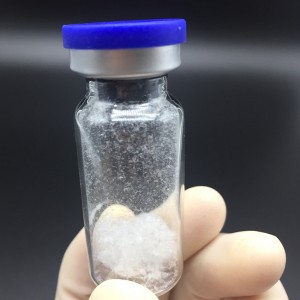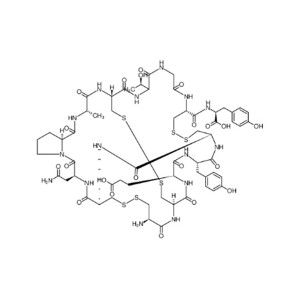MOTS-C
MOTS-C API
MOTS-C (Mitochondrial Open Reading Frame of the 12S rRNA Type-c) is a 16-amino acid mitochondria-derived peptide (MDP) encoded by the mitochondrial genome. Unlike traditional nuclear-encoded peptides, MOTS-c originates from the 12S rRNA region of mitochondrial DNA and plays a crucial role in regulating cellular metabolism, stress response, and insulin sensitivity.
As a novel therapeutic peptide, MOTS-c API has gained significant interest in the fields of metabolic disorders, aging, exercise physiology, and mitochondrial medicine. The peptide is currently under intensive preclinical investigation and is regarded as a promising candidate for next-generation peptide therapeutics targeting metabolic health and longevity.
Mechanism of Action
MOTS-c exerts its effects through mitochondrial-nuclear cross-talk—a mechanism in which the mitochondria communicate with the nucleus to maintain cellular homeostasis. The peptide is translocated from the mitochondria to the nucleus in response to metabolic stress, where it acts as a metabolic regulator by influencing gene expression.
Key biological mechanisms include:
-
Activation of AMPK (AMP-activated protein kinase): MOTS-c stimulates AMPK, a central energy sensor, promoting glucose uptake, fatty acid oxidation, and mitochondrial biogenesis.
-
Enhancement of insulin sensitivity: MOTS-c increases insulin responsiveness in muscle and adipose tissue, improving glucose homeostasis.
-
Suppression of oxidative stress and inflammation: By modulating cellular redox balance and inflammatory signaling pathways.
-
Regulation of mitochondrial function and biogenesis: Supports mitochondrial health, especially under stress or aging conditions.
Therapeutic Research and Biological Effects
Preclinical studies have demonstrated a wide range of physiological and therapeutic effects of MOTS-c in both in vitro and animal models:
1. Metabolic Disorders (Obesity, Type 2 Diabetes, Insulin Resistance)
-
Improves glucose tolerance and lowers blood glucose levels
-
Enhances insulin sensitivity without increasing insulin levels
-
Promotes weight loss and fat oxidation in diet-induced obese mice
2. Anti-Aging and Longevity
-
MOTS-c levels decline with age, and supplementation in aged mice has been shown to increase physical capacity, enhance mitochondrial function, and delay age-related decline.
-
Improves exercise performance and muscle endurance through enhanced oxidative metabolism.
3. Mitochondrial and Cellular Stress Protection
-
Enhances cellular survival under metabolic or oxidative stress conditions.
-
Increases expression of genes associated with cellular repair and autophagy.
4. Cardiovascular and Neuroprotective Potential
-
Preliminary studies suggest MOTS-c may protect vascular endothelial cells and reduce cardiac stress markers.
-
Potential neuroprotective properties through anti-inflammatory and antioxidative pathways are under investigation.
API Manufacturing and Quality Attributes
At Gentolex Group, our MOTS-c API is manufactured using solid-phase peptide synthesis (SPPS) under strict GMP-like conditions, ensuring high quality, purity, and stability for research and therapeutic use.
Product Features:
-
Purity ≥99% (HPLC and LC-MS confirmed)
-
Low endotoxin and residual solvent content
-
Produced under ICH Q7 and GMP-like protocols
Scalable production is available, from milligram R&D batches to gram- and kilogram-level commercial supply.









